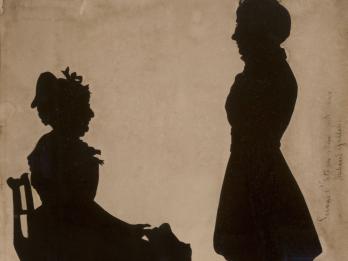Testament (Istanbul)
Blanca Yeshurun
ca. 1651
Deed of Gift and Will of Blanca, Widow of Daniel Yeshurun, Istanbul, 5395–5411 [1635–1651].
[Hebrew:] We the undersigned, when the honorable old lady, Sra. Blanca, widow of R. Daniel Yeshurun (may his soul be in paradise), was ill and lying on her sick bed, she sent for and called for us, and we found her to be lucid in her mind, etc., etc. She told us that she could already see that she was very ill and felt herself to be near death, and that she wished to divide all her property—money, belongings, and debts based on pledges—all that she has in money and of value, and all that may be called assets, without leaving among her assets anything but that which will be required for her burial needs, according to her honor: for a coffin and shrouds, and for the burial expenses and the gravestone monument at her grave, and for the seven days of mourning and the month and year anniversaries; and one gold piece for each of her heirs; and all the rest of the assets are to be divided in the following manner, as she instructed in the following language, on account of her impending death:
[Ladino:] “All the linen and all clothing that I have I give to Bula Sarah,1 the widow of R. Abraham Oliveros, and to two sons R. Isaac and R. Benjamin, the sons of R. Abraham, I say that they share it among themselves in three parts; each shall take an equal part, and from my money that I have for marriages of orphaned girls, forty big reales to the Salonika Society for Orphaned Girls, and to R. Isaac Campos who is in Salonika I give twenty big reales, and to young Rachel, the daughter of R. Isaac de la Costa, I give fifteen big reales. All the rest of my estate, both household linen and also money, whether in cash or in debts owed by verbal or written agreement, coins and paper equivalents and all that is called estate, I give it all to Sarah, the widow of R. Abraham Oliveros and to her two sons Isaac and Benjamin aforementioned, and to Sarah, daughter of R. Elia Oliveros, and to Bula Rachel, wife of R. Abraham Pishuam2 and to Rika, the daughter of R. Abraham Baruch, he who is in France, all of which will be divided equally among all the aforesaid [illegible], and each of those mentioned will take his share of the remainder of the estate.”
[Hebrew:] All of this the aforesaid Senora Blanca instructed in the event of her death, regarding the division of all the assets of her estate, from thread to sandal strap—silver, money, belongings, and debts—those on the accounts and in deeds, and those incurred verbally—all of the above items, without any remainder excepting one gold piece for each of her heirs, as mentioned above. And she told us to be witnesses to the wording of this will.
And this will was duly worded on Monday, the 3rd day of the month of Iyar, in the year 5411 [1651] in Istanbul, and the aforementioned lady, Sra. Blanca, passed away from that same illness three days after making the aforesaid will, and she did not transition from illness to illness. And in proof of this, we wrote and signed here our names, true and firm:
Joacob Arias, witness. Abraham Franco, witness. Ḥayim Alfandari. Ḥayim Katan.
Notes
[Bula is a Judeo-Spanish term of respect for a woman of advanced age.—Trans.]
[Romanized spelling of this name uncertain.—Trans.]
Credits
Blanca Yeshurun, “Testament of Blanca Yeshurun” (manuscript, Istanbul, 1671). Published in: Responsa Pene Mosheh, part II, no. 59.
Published in: The Posen Library of Jewish Culture and Civilization, vol. 5.



